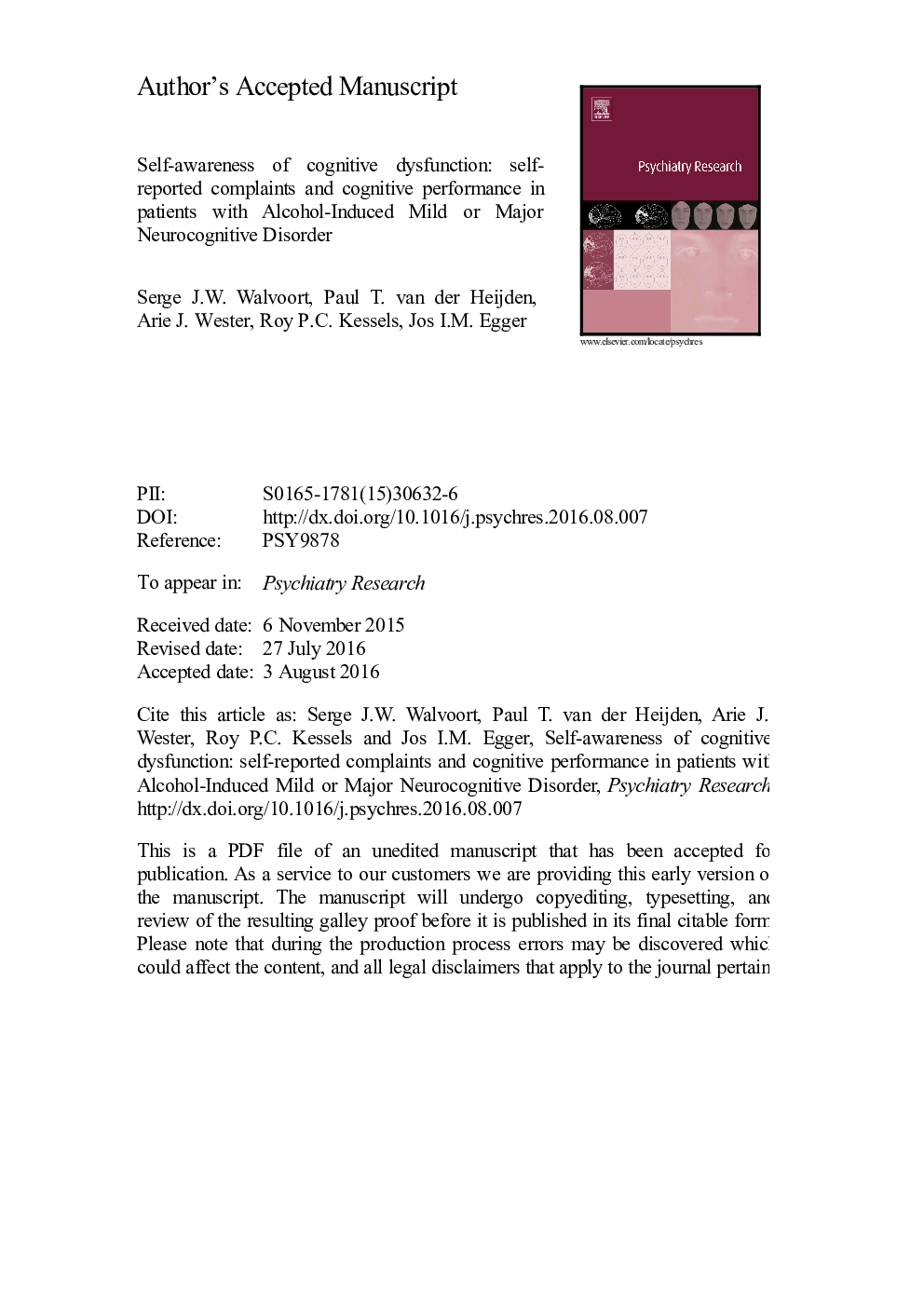| Article ID | Journal | Published Year | Pages | File Type |
|---|---|---|---|---|
| 6812421 | Psychiatry Research | 2016 | 25 Pages |
Abstract
Patients with Korsakoff's syndrome (KS) typically have difficulties in recognizing the impact of their alcohol-related cognitive deficits on daily-life functioning. In this study, mean scores on self-reported complaints (measured with Minnesota Multiphasic Personality Inventory-2-Restructured Form; MMPI-2-RF) and cognitive performance (measured with the Wechsler Adult Intelligence Scale-Third edition; WAIS-III; and the California Verbal Learning Test; CVLT) are compared between two matched patient groups with severe (KS) and mild alcohol-related cognitive disorders or non KS (NKS). KS patients demonstrate significantly lower scores on the WAIS-III indices and on the CVLT than the matched NKS group, and significantly higher scores on MMPI-2-RF validity scales that indicate denial of psychological complaints. Both groups are in the normal range on MMPI-2-RF Cognitive Complaints (COG) and Neurological Complaints (NUC) scales compared with the normative sample. Finally, self-reported complaints and cognitive performance are not correlated significantly in both groups. Despite their alcohol-related cognitive impairments, both groups report no cognitive complaints at all indicating self-awareness impairment. In addition to KS patients, also NKS patients are at risk that their apparently “without cognitive complaints” appearance on self-report questionnaires can be easily overlooked. These findings may have important clinical implications for diagnostic and treatment purposes.
Related Topics
Life Sciences
Neuroscience
Biological Psychiatry
Authors
Serge J.W. Walvoort, Paul T. van der Heijden, Arie J. Wester, Roy P.C. Kessels, Jos I.M. Egger,
